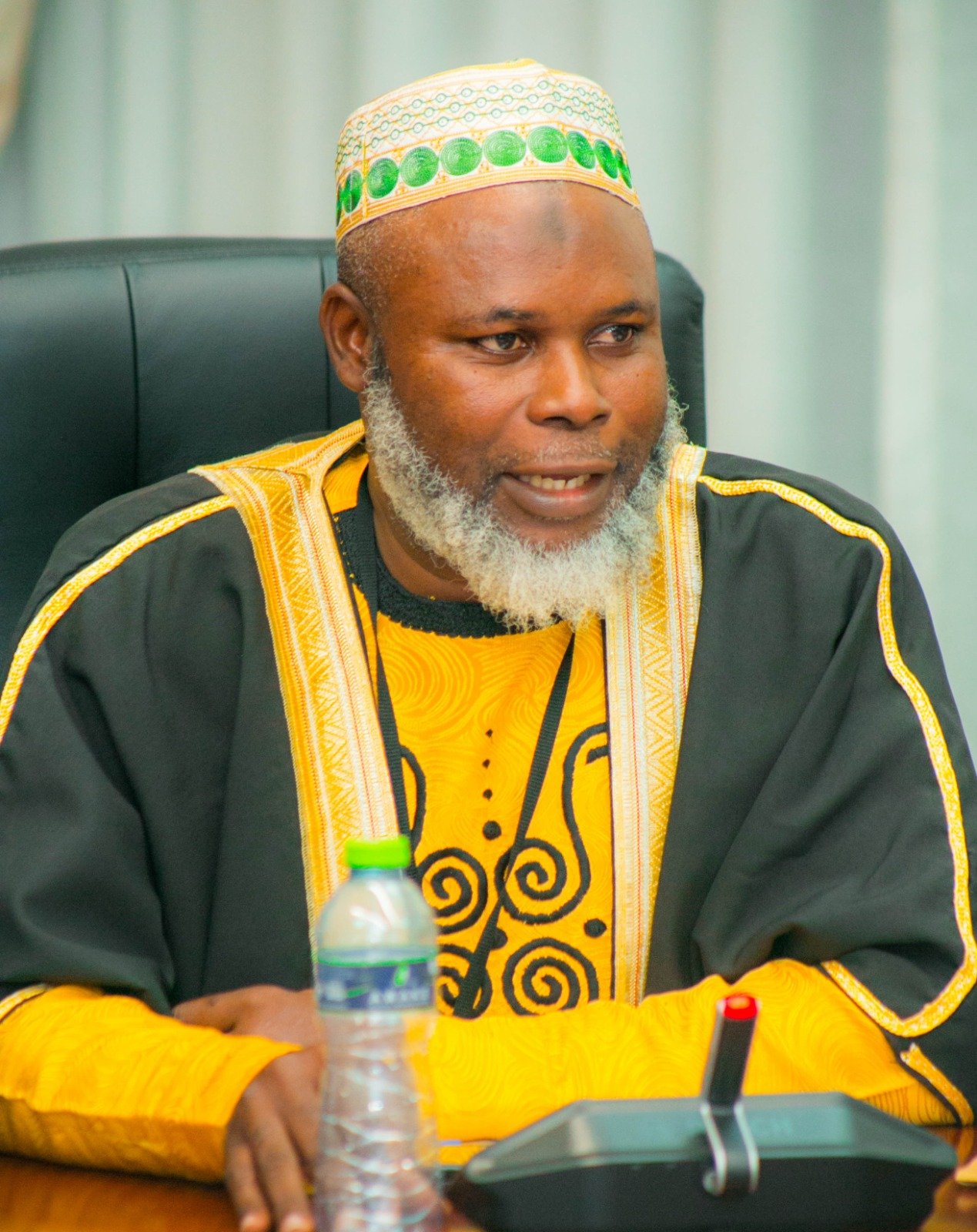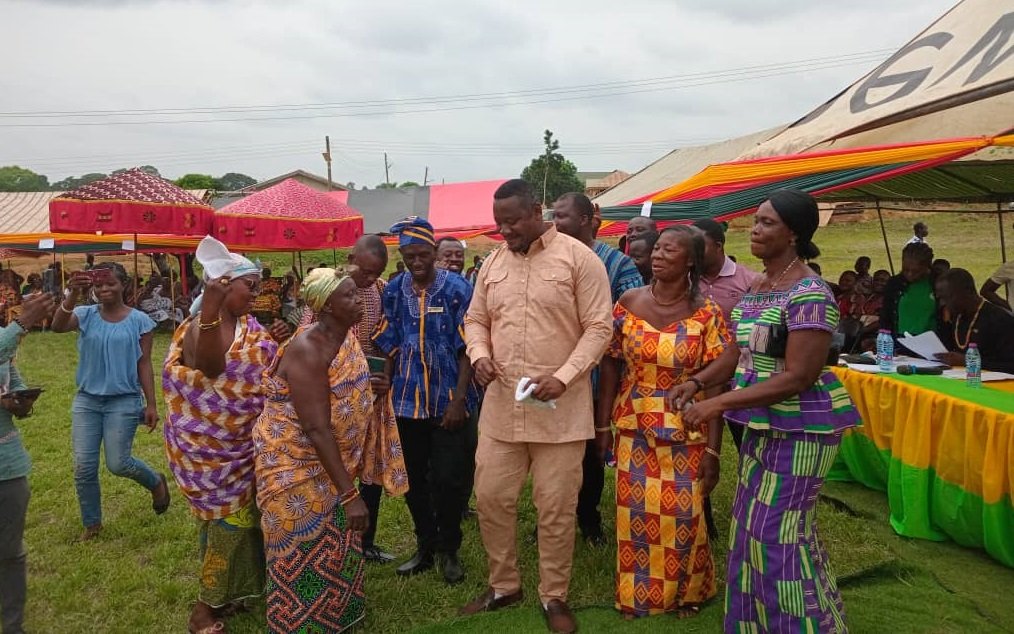Fruitful Living
Resurrection of life (Final part)
Do you walk in white?
Buried with Him…that…even so we also should walk in newness of life,” – Romans 6:4
No one enters into the experience of entire sanctification without going through a “white funeral” – the burial of the old life. If there has never been this crises of death, sanctification is nothing more than a vision.
There must be a “white funeral,” a death that has only one resurrection – a resurrection into the life of Jesus Christ. Nothing can upset such a life, it is one with God for one purpose, to be a witness to Him.
Have you come to your last days really? You have come to them often in sentiment, but you have come to them really? You cannot go your funeral in excitement, or die in excitement.
Death means you stop being. Do you agree with God that you should stop being the striving, earnest kind of Christian you have been?
We skirt the cemetery and all the time refuse to go to death. It is not striving to go to death; it is dying— ”baptized into His death.
Have you had your “white funeral,” or are you sacredly playing the fool with your soul? Is there a place in your life marked as the last day, a place to which the memory goes back with a chastened and extraordinary grateful remembrance – “Yes, it was then, at that ‘white funeral,’ that I made an agreement with God.”
“This is the will of God, even your sanctification.” When you realise what the will of God is, you will enter into sanctification as naturally as can be. Are you willing to go through that “white funeral” now? Do you agree with Him that this is your last day on earth? The moment of agreement depends upon you.
HIS RESURRECTION
“Ought not Christ to have suffered these things, and to enter into His glory?” Luke 24:26
Our Lord’s cross is the gateway into His life; His Resurrection means that He has power now to convey His life to me.
When I am born from above, I receive from the Risen Lord His very life.
Our Lord’s Resurrection destiny is to bring “many sons unto glory.”
The fulfilling of His destiny give Him the right to make us sons and daughters of god.
We are never in the relationship of god that the Son of God is in; but we are brought by the Son into the relation of sonship.
When Our Lord rose from the dead, He rose to an absolutely new life, to a life He did not live before He was incarnate. He rose to a life that had never been before; and His Resurrection means for us that we are raised to His risen life, and not to our old life.
One day we shall have a body like unto His glorious body, but we can know now the efficiency of His resurrection and walk of newness of life.
“I would know Him in the Power of His Resurrection.
“As thou has given Him power over all flesh, that He should give eternal life to as many as Thou has given Him.” “Holy Spirit” is the experimental name for Eternal Life working in human beings here and now.
The Holy Spirit is the Deity in proceeding power who applies the Atonement to our experience. Thank God it is glorious and majestically true that the Holy Ghost can work in us the very nature of Jesus if we will obey Him.
* All scripture texts are from the King James Version.
TO PONDER:
Do not set foot on the path of the wicked or walk in the way of evildoers. Avoid it, do not travel on it; turn from it and go on your way. For they cannot rest until they do evil; they are robbed of sleep till they make someone stumble. They eat the bread of wickedness and drink the wine of violence. – Proverbs 4:14-17
Stay blessed!
For further enquiries please contact us on Tel Nos. 0268130615 or 0243588467
Email: saltnlightministries@gmail. com
Website: saltandlightgh.org
By Dr. Joyce Aryee, the author
Fruitful Living
Institution of Marriage in Islam (Pt.3)

Regarding sexual intimacy, it is also prohibited for a wife to demand money or gifts before allowing her husband to engage in sexual relations. Islam views this as a form of exploitation and sin. A marital relationship must be based on mutual love, respect, and affection rather than material gain.
Prohibition of sexual intercourse during menstruation
Islam has clear guidelines regarding sexual relations during certain times, particularly when a woman is menstruating. The Qur’an prohibits sexual intercourse during menstruation, stating:
“And they ask you about menstruation. Say: ‘It is harm, so keep away from women during menstruation. And do not approach them until they are pure. And when they have purified themselves, then come to them from where Allah has ordained for you. Indeed, Allah loves those who are constantly repentant and loves those who purify themselves’” (Qur’an 2:222).
This verse emphasises the importance of refraining from sexual activity during menstruation due to physical and spiritual reasons. However, all other forms of affection and companionship are allowed, and husbands should continue to care for their wives during this time with love and respect.
Islamic law encourages cleanliness and personal hygiene, especially in matters related to physical intimacy. After the menstruation period ends, it is recommended that the wife perform ghusl (ritual purification) before resuming sexual relations with her husband.
Rights of Children on Parents
Islam emphasises the rights of children on their parents, as marriage is the foundation of family life. Parents are obligated to provide their children with proper care, education, and moral guidance. The Qur’an states: “O you who have believed, protect yourselves and your families from a Fire whose fuel is people and stones…” (Qur’an 66:6).
This highlights the parents’ responsibility to raise their children with a strong sense of morality and faith. Children have the right to a good name, religious upbringing, and education, and they must be treated with fairness and love.
In Ghana’s law, there is Children’s Right Act, Act 560 (1989) which states among other things,
• Section 4, Right to Name, Nationality and secure a Birth Certificate for the child
• Section 6(3) (a&b), protection from neglect, provide good guidance, care etc
• Section 8(1&2), Right to education and wellbeing (medical care, diet, clothing, shelter).
How Do Married Couples Resolve Their Differences in Islam?
Islam provides clear guidelines for resolving marital conflicts in a just and compassionate manner.
The Qur’an instructs that in the event of marital discord, both parties should seek reconciliation:
“If you fear dissension between the two, send an arbitrator from his people and an arbitrator from her people. If they both desire reconciliation, Allah will cause it between them” (Qur’an 4:35).
The goal is always to preserve the marriage and restore harmony. If reconciliation is not possible, Islam permits divorce as a last resort, but it is considered the most disliked permissible act in the eyes of Allah (SWT).
Rewards of Marriage in Islam
Marriage in Islam is not only a social institution but also an act of worship that brings great rewards. The Prophet Muhammad (PBUH) said: “When a man marries, he has fulfilled half of his religion, so let him fear Allah regarding the remaining half” (Bayhaqi, Shu’ab al-Iman).
Married couples are rewarded for fulfilling their marital responsibilities, showing kindness to each other, and raising righteous children who contribute positively to society.
Scholarly Thoughts About Marriage in Islam
Islamic scholars, such as Imam Al-Ghazali, have discussed marriage as a means of controlling desires and fulfilling one’s spiritual obligations. Modern scholars like Sheikh Yusuf Qaradawi also stress the importance of mutual respect and understanding in marriage, ensuring that both partners can grow spiritually and emotionally within the marriage.
Conclusion
In conclusion, marriage in Islam is a divinely ordained relationship based on mutual love, respect, and responsibility. By following the guidance of the Qur’an and Sunnah, and observing the legal frameworks in place, such as Ghana’s Mohammedan Ordinance, we can establish strong and harmonious marriages that contribute to the moral and spiritual development of society. May Allah (SWT) guide us to fulfill our marital responsibilities with sincerity and love.
The Writer is Kpone Katamanso Municipal Chief Imam, Democracy and Governance Law Student, UCC, Member of Ghana National Association of Certified Counsellors Certified by Ghana Psychology Council
References:
1.Qur’an, Surah Ar-Rum (30:21)
2.Qur’an, Surah An-Nisa (4:34, 4:4, 4:19, 4:35)
3.Qur’an, Surah Al-Baqarah (2:187, 2:221, 2:222, 2:223)
4.Qur’an, Surah At-Tahrim (66:6)
5.Ibn Majah, Hadith 1845, 1905
6.Tirmidhi, Hadith 1162, 1084
7.Bukhari, Hadith 5090
8.Children’s Right Act, Act 560 (1989)
9.Bayhaqi, Shu’ab al-Iman
10.Al-Ghazali, Ihya Ulum al-Din
11.Qaradawi, The Lawful and Prohibited in Islam
Fruitful Living
Adansi North DCE marks birthday on Farmers’ Day

It was a momentous day for the Adansi North District Chief Executive, Eric Kwaku Kusi, last Friday November 8, as the 40th National Farmers Day district level celebration held here at Adansi Adokwai coincidentally fell on his birthday.
On a low-key, Mr Kusi momentarily took to the floor, to exhibit his dancing skills responding to cheers of “Happy Birthday to you” from the audience, to which he also responded with a gesture of thanks and praises to God, as he stepped out to address the gathering.
He was joined on the dancing floor by the assembly members singing praises to God for the life of their indefatigable DCE.
In his address, Mr Kusi commended farmers in the Adansi North and the country as a whole “who tirelessly cultivate the land to feed all of us in our communities.”
He said the government realising the important role agriculture played in the economy and the challenges facing farmers due to the effects of climate change was rolling out initiatives and policies to support climate-resilient agriculture, including agriculture insurance programme for farmers.
In all 16 farmers were awarded various prizes for their contribution to food sufficiency in the country.
Francis Appiah, 41, who hails from Adokwai was adjudged the District Best Farmer for 2024, and took home a tricycle and other assorted items. The first runner-up prize went to Sakyi Kwabena also from Adokwai and the second runner-up went to Kwame Gyamera from Dompoase.
From Alhaji Salifu Abdul-Rahaman, Adansi Adokwai







